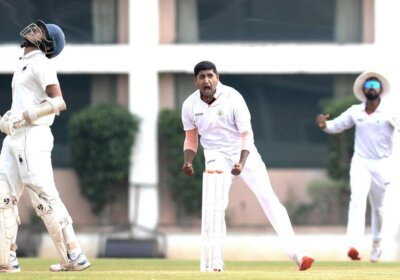Sundar Pichai, the CEO of Google, is leading a significant change in the health tech industry through the use of advanced artificial intelligence (AI) technologies. Pichai recently announced a groundbreaking development: Google’s AI can now predict cardiovascular events by analyzing eye scans. This breakthrough has the potential to replace traditional diagnostic methods such as CT scans, MRIs, and X-rays.

Sundar Pichai Announces AI Can Predict Cardiovascular Diseases With Just An Eye Scan
Big Leap Forward As Pichai Announces Google AI Can Predict Cardiovascular Diseases With Just An Eye Scan
The journey towards this achievement began four years ago when researchers from Google and Aravind Eye Hospital collaborated to create an automated tool for detecting diabetic retinopathy, a leading cause of blindness worldwide.
The resulting algorithm can quickly diagnose the disease by analyzing retinal photos. Soon, the algorithm is expected to operate independently, transforming the landscape of eye disease detection and management. Moreover, Google introduced an algorithm that can identify a person’s gender, smoking status, and predict the risk of a heart attack within five years using retinal imagery.
It Can Predict Various Other Dieseses As Well
This AI can identify health issues that even the trained experts couldn’t detect, offering possibilities for early detection of diseases like dementia, multiple sclerosis, Parkinson’s, Alzheimer’s, and schizophrenia. The eye, particularly the retina, provides valuable insights into overall health.
Major Step Towards AI In Healthcare
By examining the blood vessels in the retina, doctors can infer important information about an individual’s blood pressure, age, and smoking habits, which are crucial predictors of cardiovascular health. To develop their cardiovascular prediction algorithm, Google and Verily’s scientists used machine learning to analyze a medical dataset containing eye scans and general medical data from nearly 300,000 patients.
Neural Network Data Is The Key
Neural networks were employed to find patterns and associate specific signs in the eye scans with metrics like age and blood pressure, which are necessary for predicting cardiovascular risk. In tests, Google’s AI successfully differentiated between retinal images of two patients, one who experienced a cardiovascular event within the next five years and one who did not, with a 70% accuracy rate.
Although slightly lower than the commonly used SCORE method that requires a blood test and achieves a 72% accuracy rate, this performance is still remarkable. This novel approach to assessing cardiovascular risk not only streamlines the process for doctors but also signals a shift towards a new AI-driven paradigm for scientific discovery. The AI algorithm is uncovering fresh methods of analyzing existing medical data, suggesting that with sufficient data, AI could generate entirely new medical insights without human guidance.
Additionally, this technology holds potential beyond high-tech medical facilities. In rural vision centers with limited resources, a cost-effective and portable solution involving a smartphone, an inexpensive condensing lens, and a DIY retinal camera could facilitate vision screenings on the go.
Even A Picture Would Do
Patients could capture a picture, upload it to the cloud, and receive a diagnosis within moments, showcasing the immense potential of this technology. While the concept of an AI doctor independently generating new diagnoses may still be distant, research indicates that it is not entirely far-fetched. Pichai’s announcement demonstrates that Google’s AI is already advancing towards a future where traditional diagnostic methods may become supplementary to the insights we can derive from our eyes. This points to a world where a simple eye scan could uncover hidden health issues and predict potential cardiovascular events, revolutionizing healthcare and diagnostics.
Each Eye Tells A Story
Each eye tells a story in the hands of Google’s AI, bringing us closer to a healthier future. As we navigate this exciting era of health tech, the quote “To understand the body, look to the eye” holds truer than ever before. The vision of healthcare is becoming clearer as it directly gazes into our eyes.























Pingback: Google Launches New Multi-Modal Gemini AI